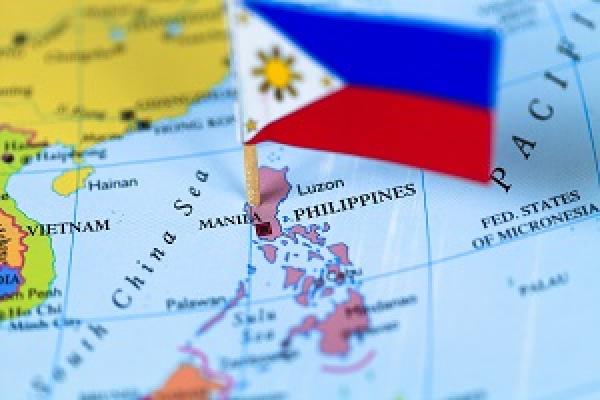
Tony Nicholson
Published: March 25, 2020

This article is based upon advice prepared and provided by the Club’s correspondent lawyers Del Rosario & Del Rosario.
Background
In response to the threat posed by COVID-19, the President of the Philippines initially placed Luzon, which includes the capital Manila, under “enhanced community quarantine” (ECQ) from 16 March to 13 April, which was recently subject to a further extension to 31 May. However, the recent extension beyond 15 May has seen a traffic light system introduced, resulting in the “community quarantine” (CG) status in low risk Provinces being removed (green light); those in moderate risk Provinces continue under “general community quarantine” (GCQ) (amber light); and a new “modified enhanced community quarantine” (MECQ) status introduced for high risk Provinces (red light). No doubt both the date and the nature of the quarantine status in each Province, will be kept under review. The significant restrictions imposed on one third of the Philippines, with a population of more than 55 million people, includes suspension of public transport and impacts on access to non-essential medical or surgical assistance.
In addition to the direct impact this has on Manning Agents and Company Designated Physicians (CDPs), the Supreme Court closed all courts nationwide and Government offices like the National Labour Relations Commission (NLRC) and National Conciliation and Mediation Board (NCMB) have suspended hearings. Despite the restrictions on both domestic and international travel in force, Overseas Filipino Workers (OFWs – which includes seafarers) are still able to travel in and out of the country. However, we understand the POEA are unable to process seafarers’ contracts at present.
The “work from home” scheme adopted by the private sector during the ECQ, has resulted in Company Designated Physicians (CDPs) informing Manning Agents that they will be unable to see seafarers who are undergoing treatment on an “out-patient” basis for the duration of the ECQ. Where possible / appropriate, seafarers are advised to continue their treatment at a clinic/hospital near the place of their residence and required to send medical reports issued by doctors who provided interim treatment to the Company Designated Physicians (CDP) via electronic mail. On the basis of the said reports, the CDP will evaluate the seafarers and send updates to the Manning Agents/Principals.
Effect of the ECQ on the 120 / 240 Day Rule
Current Supreme Court jurisprudence dictates that employers must take the following steps to avoid exposure to a claim for maximum disability under the POEA SEC or CBA by default, based on the number of days a seafarer has been treated. It is essential employers continue to strictly abide by the following rules:
- The CDP must issue a fit to work determination and/or provide a final medical assessment regarding the seafarer’s disability grading, within a period of 120 days.
NB: If the CDP fails to act as indicated above, within the period of 120 days, without sufficient justification, then the seafarer's disability becomes permanent and total. - The CDP can extend seafarers’ treatment beyond 120 days with sufficient justification (e.g., seafarer requires further medical treatment), for a period up to 240 days. The employer has the burden to prove that the CDP has provided sufficient justification to extend the period beyond 120 days, before the 120 day period expires.
- If the CDP still fails to declare the seafarer fit to work and/or provide a final disability assessment within the extended period of 240 days, the seafarer's disability becomes permanent and total, regardless of any justification issued.
NB: In this regard, the CDP is mandated to issue a medical certificate, which should be personally received by the seafarer within 240 days, or, if not practicable, sent to the seafarer before the expiry of 240 days, by any other means sanctioned by the Rules of Court.
Indisputably, the enforced travel restrictions require CDPs to suspend work and prevents seafarers from reporting throughout the duration of the ECQ. Employers therefore need to review their options vis-à-vis their desire to continue providing medical assistance to their seafarers, without jeopardising their position giving consideration to the strict application by the courts of the 120 / 240 day rule, in liaison with the Club and retained correspondent / lawyers.
Safety Measures
Employers cannot predict how the Philippine labour courts will act in response to the obvious impact of COVID-19, in their interpretation of the 120/240 day ruling. To guard against the application of the State policy of favouring labour in case of doubt, employers should continue to adopt the following guidelines in providing medical attention to their seafarers:
1. The CDP must still issue a final assessment prior to the end of the 120 day period, or;
2. If justification can be provided to extend treatment beyond 120 days, the CDP must issue a written report stating their justifications for extending the period of treatment.
3. If treatment is extended, a final assessment must still be issued before the lapse of 240 days. Employers must check all cases approaching 240 days and take immediate steps to ensure a final assessment is issued.
Arguably, during the implementation of the ECQ, the strict observance of the 120/240 day period will not be beneficial to all seafarers, as it will limit their ability to access treatment. If employers wish to continue providing medical attention to the seafarers by extending the period of treatment, on a case by case basis, by another 30 days or more, depending on when the ECQ will be lifted, employers may be protected though the following precautionary measures:
4. If the seafarer consents, they will be required to make a written request to the employer that their treatment be extended in line with the number of days the Island of Luzon is under ECQ. The request must be handwritten by the seafarer in the language or dialect for which the seafarer is very much familiar with (most likely Tagalog).
5. The medical report(s) to be issued by the CDP during the “extended” period, must contain a statement that treatment has been continued in line with the written request of the seafarer patient.


